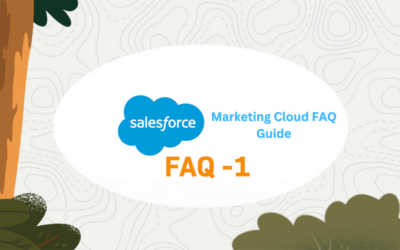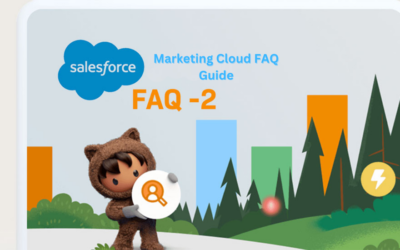In the ever-evolving world of contemporary leadership, the definition of an effective leader has transcended the confines of mere authority and decision-making prowess. Today, true leadership extends far beyond the boundaries of traditional hierarchical structures, and at its core lies a profound and transformative concept – Emotional Intelligence (EI). Emotional Intelligence, often referred to as EI or EQ (Emotional Quotient), is the bedrock upon which exceptional leadership is built. It encompasses the ability to recognize, understand, manage, and effectively utilize not only our own emotions but also the emotions of others. It acts as a guiding compass, shaping our interactions, decisions, and behavior, both in personal and professional spheres. In this comprehensive guide, we embark on an enlightening journey to uncover the pivotal role of Emotional Intelligence in leadership, unraveling the intricate web of skills and insights it brings to the forefront.
The exploration begins with a deep dive into the fundamental components of Emotional Intelligence. We will navigate the intricacies of self-awareness, self-management, social awareness, and relationship management – the four pillars upon which this profound skill is built. These pillars not only empower leaders to decipher the complexities of their own emotions but also enable them to forge meaningful connections with their team members, thereby nurturing a work environment defined by trust, understanding, and collaboration. As we progress, we will discover how Emotional Intelligence transcends leadership styles, enhancing various approaches to leadership, from transformational to servant leadership. By the journey’s end, we will unveil the profound impact of Emotional Intelligence on decision-making, communication, conflict resolution, motivation, and the cultivation of trust. Through real-world case studies and actionable strategies, this guide equips leaders with the tools to harness their Emotional Intelligence, thereby unlocking their full leadership potential in an ever-evolving business landscape. If you need assistance with Salesforce CRM setup and optimization, companies like CRM Force can provide valuable expertise and support.
1- Unpacking Emotional Intelligence
What is Emotional Intelligence?
Emotional Intelligence, often referred to as EI or EQ (Emotional Quotient), is a multifaceted concept that underpins effective leadership. It encompasses the capacity to recognize, understand, manage, and effectively utilize emotions, both our own and those of others. This intricate skill set acts as a compass guiding our interactions, decisions, and behavior in personal and professional spheres.
Self-Awareness: The cornerstone of EI, self-awareness involves an honest and profound recognition of one’s own emotions, strengths, weaknesses, and their profound influence on actions. It enables leaders to understand how their emotions impact their behavior and decisions, paving the way for self-improvement and personal growth.
Self-Management: This component revolves around the ability to control impulsive feelings and behaviors, adapt to change, and effectively manage stress. Leaders with strong self-management skills are better equipped to maintain their composure, make rational decisions, and lead by example during times of uncertainty.
Social Awareness: Effective leadership hinges on the capacity to discern emotions in others, empathize with their experiences, and understand their perspectives. Social awareness enables leaders to build rapport, foster trust, and demonstrate genuine interest in the well-being of their team members, thereby establishing the foundations for meaningful interpersonal relationships.
Relationship Management: Beyond recognizing emotions in oneself and others, EI empowers leaders to harness these emotions to navigate social interactions adeptly. By adeptly managing relationships, leaders can foster collaboration, resolve conflicts amicably, and build strong, mutually beneficial connections with team members and colleagues.
2- The Connection Between EI and Leadership
The Evolution of Leadership
Historically, leadership was often associated with authority and hierarchical structures. However, the modern business landscape calls for a paradigm shift in leadership. Today’s leaders must transcend traditional notions of power and instead focus on forming authentic, emotionally intelligent connections with their team members.
Leadership Styles and EI
Various leadership styles align harmoniously with high EI. We will explore how emotional intelligence enhances different leadership styles, such as:
Transformational Leadership: Leaders with high EI can inspire and motivate their teams to achieve extraordinary results. Their ability to convey a compelling vision and connect with their team members on an emotional level is a hallmark of transformational leadership.
Democratic Leadership: In democratic leadership, leaders involve their team members in decision-making processes. EI plays a vital role here by fostering open communication, active listening, and collaboration.
Servant Leadership: Leaders who prioritize the well-being of their team members and serve their needs are more likely to build trust and loyalty. EI enables servant leaders to connect with their team members on an emotional level and understand their unique requirements.
3- The Impact of EI on Decision-Making
The Rational vs. Emotional Brain
In the realm of business, decisions are rarely purely rational. Emotional intelligence is instrumental in making sound judgments as it empowers leaders to consider both factual information and the emotional nuances at play.
Mitigating Emotional Biases
Leaders with a heightened EI are better equipped to recognize and effectively counteract biases that might otherwise cloud their judgment. By acknowledging their own emotional biases and those of others, leaders can make more equitable and rational decisions, fostering a culture of fairness and objectivity within their organizations.
4- EI and Effective Communication
The Imperative of Effective Communication
Effective communication is the linchpin of successful leadership. Leaders with a well-developed EI possess the skills to convey their thoughts and feelings articulately, all while being attentive and empathetic listeners. They understand the importance of non-verbal cues, tone, and body language in effective communication.
Mastering Conflict Resolution
Leaders often find themselves confronted with conflicts, whether they stem from differences in opinions, objectives, or interpersonal dynamics. EI serves as a guiding light in resolving disputes harmoniously. Leaders with strong EI can identify the root causes of conflicts, address them with empathy, and facilitate solutions that strengthen relationships rather than fracture them.
5- EI as a Catalyst for Motivation
The Role of Inspiration
Motivating a team to perform at its best necessitates more than just external incentives and rewards. Leaders with elevated EI can tap into the intrinsic motivations of their team members, igniting a lasting drive for excellence. By understanding what truly drives and inspires each team member, emotionally intelligent leaders can tailor their approach to foster enthusiasm and commitment.
Cultivating Trust
Trust forms the cornerstone of any successful team. EI fosters trust by demonstrating authenticity, empathy, and a genuine concern for the well-being of team members. Leaders who consistently exhibit these qualities build trust with their teams, creating an environment where individuals feel safe, supported, and valued.
6- Developing Your Emotional Intelligence
The Power of Self-Reflection
Enhancing EI commences with self-reflection. Leaders must take the time to introspect and gain insights into their emotional patterns, triggers, and responses. This introspection enables leaders to identify areas for improvement and chart a path toward enhanced emotional intelligence. Practical exercises, such as journaling and mindfulness, can aid in developing self-awareness and self-management skills.
Embracing Feedback
Feedback is an invaluable tool for comprehending how others perceive your emotional intelligence. Leaders should actively seek feedback from colleagues, team members, and mentors to gain a comprehensive understanding of their strengths and areas for growth. Constructive feedback can serve as a roadmap for personal and professional development, enabling leaders to refine their EI skills over time.
7- Case Studies
To illustrate the profound impact of emotional intelligence in leadership, we will delve into real-world case studies. These examples span diverse sectors, from the corporate boardroom to the heart of non-profit organizations. These case studies will showcase how leaders have leveraged their emotional intelligence to achieve remarkable success, inspiring their teams and fostering innovation and growth.
8- The Path Forward
Challenges in Developing EI
The journey to developing emotional intelligence is not without its share of challenges. Leaders may encounter resistance to change, personal biases, or difficulty in recognizing and managing their emotions. It is crucial to acknowledge these challenges and proactively address them through continuous self-improvement efforts and support from mentors or coaches.
The Continuous Evolution
Emotional intelligence is not a destination but an ever-evolving journey. To conclude, we will discuss how leaders can perpetually nurture and refine their emotional intelligence, ensuring that it remains a potent force throughout their leadership journey. Strategies for maintaining and further developing EI will be explored, emphasizing the ongoing commitment required to excel as an emotionally intelligent leader.
Conclusion
In modern leadership, Emotional Intelligence emerges as the guiding North Star, illuminating the path towards not just effective but exceptional leadership. As we conclude this comprehensive journey into the world of Emotional Intelligence, it becomes abundantly clear that this skill set is the catalyst that transforms leaders into visionaries, managers into mentors, and teams into cohesive units. The four pillars of Emotional Intelligence – self-awareness, self-management, social awareness, and relationship management – empower leaders to navigate the complex landscape of human emotions with grace and insight. In doing so, they are better equipped to make judicious decisions, communicate with empathy, resolve conflicts harmoniously, motivate teams intrinsically, and cultivate an atmosphere of trust. This is the essence of leadership in the 21st century.
In the realm of Executive Leadership, where the stakes are high, the demands are ceaseless, and the challenges are multifaceted, Emotional Intelligence emerges as a non-negotiable cornerstone. Exceptional executive leaders understand that it is not enough to merely possess expertise in their fields; they must also master the art of connecting with their teams on a profound emotional level. In an era where leadership is about not just managing but inspiring, not just directing but empathizing, and not just executing but motivating, Emotional Intelligence is the force that propels leaders to unprecedented heights of success. It is the power that enables them to lead not with mere authority, but with genuine influence and lasting impact. In the ever-evolving landscape of executive leadership, Emotional Intelligence remains the beacon guiding leaders toward a future defined by excellence and transformation. To learn more about how CRM Force can assist you in recruiting top CRM talent and optimizing your CRM strategies for successful drip campaigns, contact us today. Together, let’s maximize your customer engagement Contact Us today.





